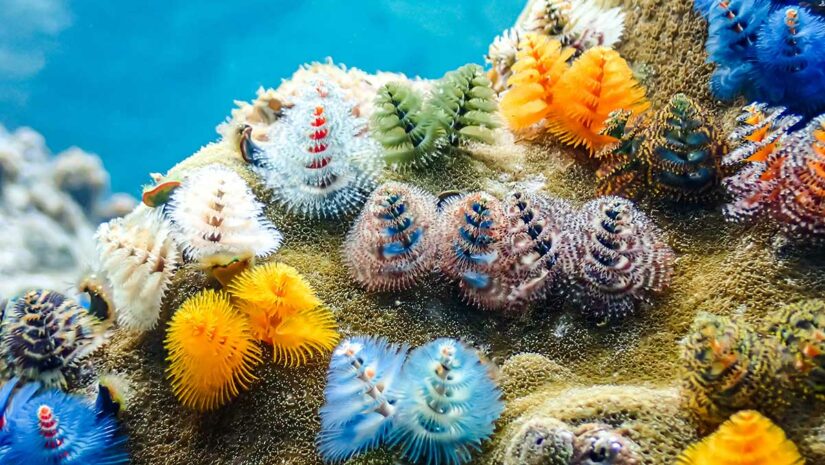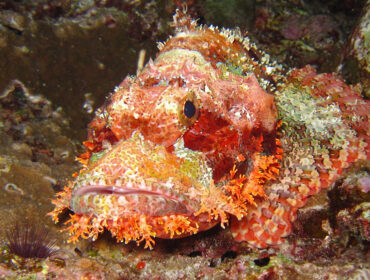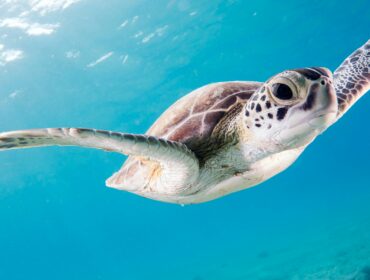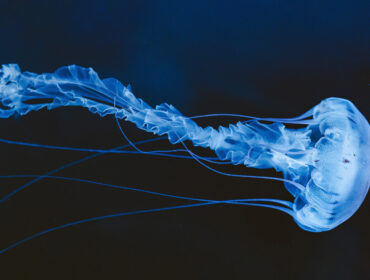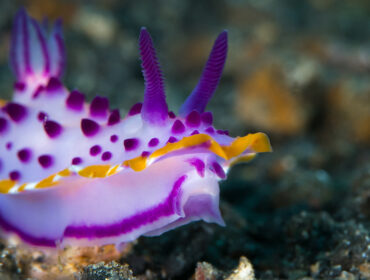The Christmas tree worm is a tiny marine worm that can be found on tropical coral reefs. They have been spotted all over the world. Its name is in reference to its uncanny resemblance to a Christmas tree. A particularly beautiful annelid, they are popular subjects of underwater photographers.
What is a Christmas Tree Worm?
The Christmas Tree Worm (Spirobranchus giganteus) is a fascinating marine creature that adds vibrant colors and intricate patterns to the underwater world. Named for its resemblance to a festive holiday decoration, this small worm brings a touch of joy to coral reefs around the globe.
Characteristics
These worms are tiny creatures, averaging a length of only 1.5 inches. Their bodies are tube-shaped with two colorful spirals of plumes that extend out. The plumes support hair-like features, called radioles, that are used to feed on plankton and other floating food particles as well as for breathing. They come in a variety of bright, eye-catching colors including blue, white, orange, and yellow. The patterns formed by the radioles are varied as well.
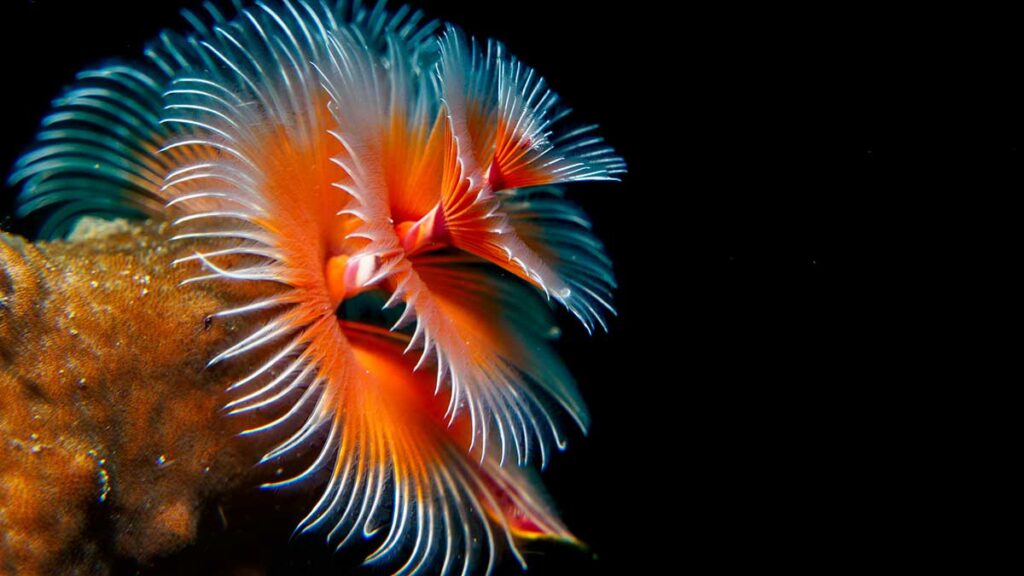
Habitat
While the brightly colored plumes are easy to spot, the rest of a Christmas tree worm’s body remains hidden in a burrow it builds into coral. The particular type of coral chosen for the burrow will depend on the size and reproductive success of the worm. Colonies are formed, with some consisting of only a few worms and others as large as 100 per square meter.
Behavior
A sedentary and skittish creature, the Christmas tree worm spends its life primarily in one spot. It will pull its entire body into the burrow at the slightest sign of a predator. Light-sensitive molecules on the radioles allow the worm to detect the smallest shadow. A modified radiole called an operculum plugs the opening of the burrow. After a few minutes, the Christmas tree worm will slowly come out of the burrow, ensuring the threat is gone before fully extending its plumes.
Diet
As filter-feeders, Christmas tree worms extract microscopic organisms, such as plankton, from the surrounding water. The intricate structures of their radioles allow them to capture and consume these tiny particles, sustaining their nutritional needs.
Reproduction
Christmas tree worms do not have any physical contact when they reproduce. They will simply cast out their sperm and eggs. As they come in contact in the water current, the eggs are fertilized and grow into larvae that will rest on coral. Once large enough, they will dig into the coral and form their own burrows. They can live anywhere from 10-40 years.
Predators
Despite their vibrant appearance, Christmas Tree Worms face threats from various marine predators. Fish, crabs, and certain species of snails feed on these colorful worms. Their ability to quickly retract into their protective tubes serves as a crucial defense mechanism against potential predators.
Where to Find the Christmas Tree Worm
The Christmas tree lives in various tropical oceans around the world, contributing to the kaleidoscope of colors on coral reefs. Their habitat extends across regions such as the Caribbean Sea, the Indo-Pacific, and the Red Sea. Divers and snorkelers exploring these warm, clear waters may encounter the enchanting sight of Christmas tree worms adorning the hard corals, creating a visual spectacle that adds to the allure of these marine environments. Whether in the crystal-clear waters of the Maldives or the vibrant reefs of the Great Barrier Reef, these charming creatures find their niche, bringing joy to those fortunate enough to witness their intricate beauty.
Conclusion
The Christmas tree worm is a marvel of nature, bringing a touch of beauty to the diverse ecosystems of coral reefs. Its unique characteristics, vibrant colors, and symbiotic relationship with corals make it a captivating subject for scuba divers and underwater enthusiasts.

